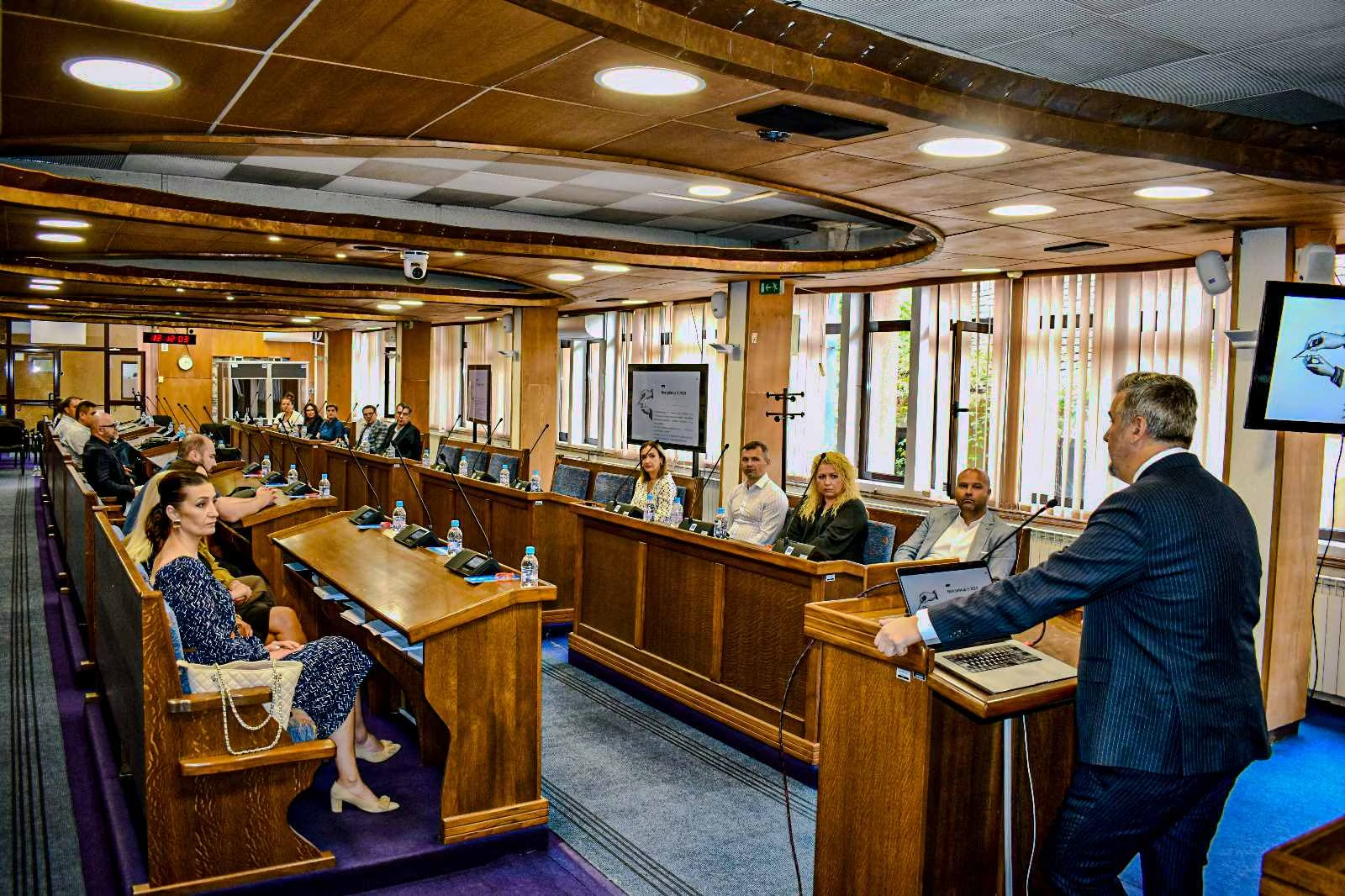
The “Knowledge for Reform” project implemented by UNOPS contributed to the ongoing dialogue on European integration in the Brčko District of Bosnia and Herzegovina. This engagement reaffirmed the importance of inclusive and informed discussion at all levels of government as the country advances on its path toward EU membership.
During the visit from 16-20 June, the expert delivered an intervention addressing the evolving needs and expectations of the European Union for Bosnia and Herzegovina. The presentation placed particular emphasis on the institutional and administrative preparedness of the Brčko District, highlighting the strategic importance of local-level readiness in meeting EU obligations.
A significant part of the discussion focused on the upcoming screening process—an essential step in the accession negotiations. The expert outlined practical approaches to preparing for the screening, emphasising coordination, planning, and the use of existing administrative resources. Participants were encouraged to view screening not only as a technical phase but as an opportunity to deepen institutional understanding of the acquis communautaire and identify priority areas for reform.
The session also explored how reform processes can be better aligned with EU standards, realistic timelines, and the political dynamics of the accession process. The need for credible, timely, and well-coordinated reform was underscored as a key factor in maintaining EU support and internal momentum.
The event brought together professionals and representatives of institutions from the Brčko District who demonstrated strong commitment to European integration. Their openness to dialogue and willingness to engage in technical preparation speak to the potential for Brčko to play a constructive role in the overall accession process of Bosnia and Herzegovina.
This activity is part of UNOPS’s broader engagement in supporting public administration reform and European integration through the "Knowledge for Reform" project. By promoting institutional cooperation, capacity building, and policy coordination, the project aims to contribute to a more resilient and reform-oriented governance framework in Bosnia and Herzegovina.
- Summary